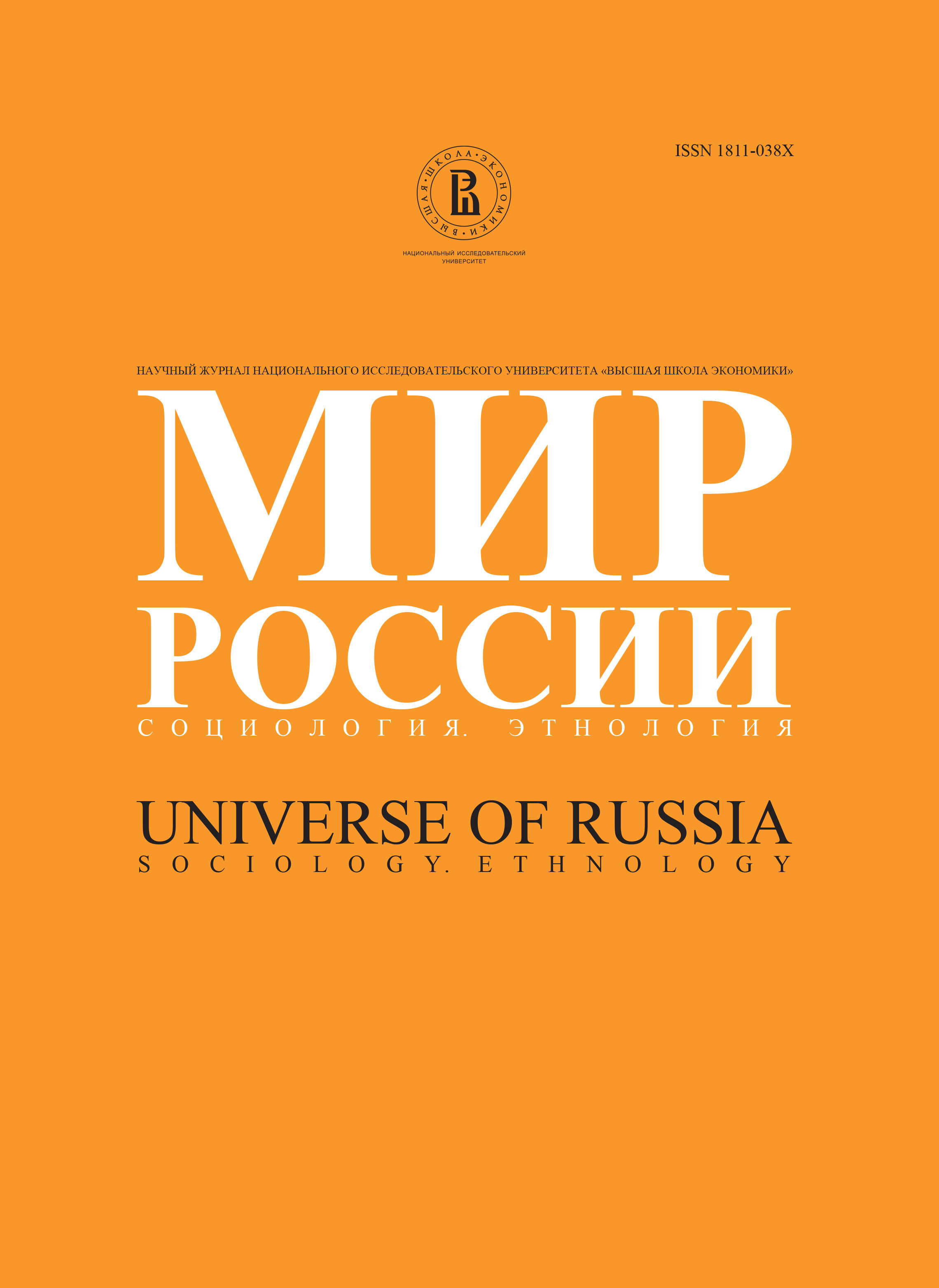Findings and Paradoxes of Ethnometric Analysis of Russia’s Economic Culture According to Hofstede
Abstract
The article is devoted to ethnometrics – the trend of ethnosocial researches, which analyses mental characteristics of different ethnic groups applying the formalized (mathematical) methods. The Netherlands scholar, Geert Hofstede, whose investigations started in late 1960s, is regarded as the founder of ethnometrics. He has found four basic indices, by means of which the prevailing human values in the very different countries can be described, – they are: «power distance index» (PDI), «uncertainty avoidance index» (UAI), «individualism» (IDV) and «masculinity» (MAS). «Individualism» and «power distance» indices are the most important ones for the analysis of the differences between the West and the East: these indices let countries of the world to be sorted clearly into the East (high PDI and low IDV) and the West (contrariwise, low PDI and high IDV) megacivilizations.As the authors of the article started studying the scopes of the Hofstede ethnometrics to perceive the «Russia’s soul», the principal subject matters for their investigations have become the next ones: comparative ethnometrical description of Russia’s mentality on the whole;
correlation between the ethnometrical characteristics of Russia’s mentality and participation of the Russia’s in the shadow economy;
differences between the ethnometrical characteristics of the bulk of population and students’ ones as the young employees generation.
The authors of the article have analyzed the whole of data obtained during ethnometrical researches throughout Russia, based on Hofstede’s method. The data founded while the investigation of the three Russia’s regional centers (Tula, Stavropol, Tyumen) were accepted as the most reliable ones, being obtained by the authors during the sociological poll in 2004.
The collected data analysis has revealed that Hofstede indices value for Russia, being comparable with the host data body on the other countries of the world, can be characterized in such a way: IDV – 50–60 points; PDI – 40–50 points, probably. Thus, the Russia’s mentality is intermediate one between the «western» and the «eastern» mentalities. The ethnometrical research has revealed also the great regional differences: Stavropol turned out to be closer to the East while Tyumen – to the West. During the investigation carried out in 2004 the hypothesis of the correlation between the Hofstede indices and the shadow economy sector in the three Russia’s cities had been also tested. Besides Hofstede questionnaire the respondents were asked about their private participation in different shadow truck, about frequency of deals of that kind and about their attitude toward these terms. The collected database which covered 1869 respondents has been used for testing Pearson correlations between the respondents’ answers concerning different types of the shadow economy and appropriate Hofstede indices. The research has revealed that development of the shadow economy in contemporary Russia is mostly affected by uncertainty avoidance and power distance – these are the main objects of correlation dependencies.
The authors have examined so far as the implications acquired coincide with the results of the previous investigations devoted to the dependence of shadow economy development on the national economic culture. When comparing with the investigation carried out in 1998 by the researchers of «Transparency International», it turned out that both investigations agree upon the fact that corruption prevalence depends positively on the individualism index and negatively – on the power distance index.
While studying Russia’s economic mentality, the authors of the article have decided to find out how do the students’ mental values and the nation’s (on the whole) ones sort with each other not in Russia only, but in other modernizating countries, too. They have advanced a hypothesis according to which the system of higher education in modernizating countries transmits cultural and mental institutions of developed countries, while raising «westernization» among young people. To test the hypothesis, in 2005–2006 the students poll was organized in seven countries including four semi-periphery countries (Russia, Belarus, Ukraine, Turkey, Pakistan) and two periphery countries (Kazakhstan and Kirghizia). On the basis of findings the next conclusion can be drawn: it is unambiguously that in four countries (Turkey, Pakistan, Ukraine, Belarus) students are «westernized» much more than their usual nationals: PDI and IDV indices value for these countries turned out to be close to the appropriate indices calculated for citizens of Anglo-Saxon countries. The same conclusion, though with somewhat less certainty (because of the lack of information) can be drawn also concerning the rest three countries (Russia included). Thus, the hypothesis, that higher education in the Occident is the «translator» of Western mental values has become affirmed.
It had been expected that students’ consciousness «westernization» would be stronger as the duration of their higher education increases. However Pearson correlation between Hofstede indices and students’ standard of education was hardly traceable; even if correlation dependencies were observable, their vector often conflicted with the higher education westernizing influence hypothesis. The paradoxical implication about zero marginal return on higher education – if «return» means students’ consciousness «westernization» (i.e. increase in individualism, decrease in power distance) suggests itself. In search of this paradox explanation the hypothesis that in the Occident the «westernizing» factor is not the higher education itself, but preparation for it has been advanced. So, ethnometrical analysis of the Russia’s economic mentality according to the G. Hofstede’s method has revealed that:
on a mental world map the Russia’s economic mentality is the intermediate one between the West and the East megacivilizations cultures;
there are significant correlation dependencies between the Hofstede’s mentality indices and participation of the Russia’s in the shadow economy (including corrupt practices);
apparently, Russia’s students have more westernized mentality than the Russia’s on the whole do, although the degree of discrepancy in the student’s mentality and the nation’s one, on the whole, is distinctly low in Russia than in other modernizating countries.






